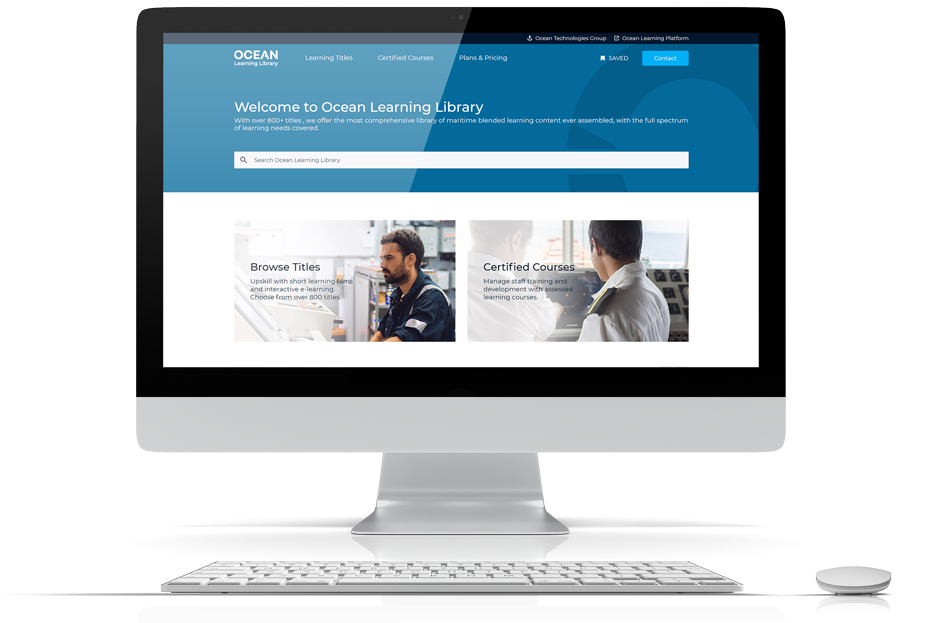Guy Platten presentation at OTG Event during Posidonia 2022

Guy Platten
Secretary General
International Chamber of Shipping
At the recent seminar held by Ocean Technologies Group at Posidonia, Guy Platten, Secretary General of the International Chamber of Shipping delivered an impassioned presentation which discussed:
- The impact on seafarers of global events over the past two years
- The regulatory landscape covering seafarers
- Positive stories to come out of the shipping industry during the pandemic
- Lessons learned
- How the industry can look after it’s people
- Decarbonisation
- The 4th propulsion revolution
- Just Transition Task Force
- Ensuring that shipping has an inclusive, highly skilled and highly motivated workforce
Watch the full video of Guy Platten below.
Transcript in full.
I’ve had many conversations recently about just transition and green curriculums, which we’ll get onto later.
Before going into the green side of it we should talk a little bit about the regulating background.
I think we can’t look at the future until we look at what’s happened as well over the last couple of years and continues to happen with the COVID-19 pandemic. And of course now the Ukraine crisis.
And then we’ll move on to future fuels and decarbonization and the just transition.
I think seafarers have had an incredibly difficult two years and they need support as the industry moves towards decarbonization.
I think many of us now recognize that crew mental health is one of the top issues for reputable companies and organisations to address.
But one of the consequences of the COVID-19 pandemic has been a number of seafarers actually leaving the sector, something which we need to be cognisant on as we move towards a green future.
The war in Ukraine has had a big impact on seafarers, not just those caught up directly in the conflict, but also on the wider supply.
We have huge potential future skills gaps and how can we encourage young people to enter and to join our industry going forward?
And as we power towards a green transition, we must make sure seafarers are set up for success and for a just transition to this new decarbonized future.
So just a little reminder on the regulatory background that covers our seafarers. At the moment we of course have the international ILO Maritime Labour Convention 2006, as amended, and there were some conversations a couple of weeks back and some amendments.
For the women in the audience now for the first time, it’s enshrined that women will be able to have PPE actually designed for women, so it’s only taken 2000 years to get that. But certainly it’s a sort of step forward and the MLC is split into five areas.
Minimum requirements for seafarers to work, conditions of employment, accommodation, Health Protection and compliance, and of course back in that is the regulatory environment under the IMO, including STCW and MarPol.
COVID 19 lessons
So let’s talk a little bit about COVID-19 because it is important as we learn from the mistakes of the pandemic as an industry and make sure we enact those solutions for the future because if you remember at one point 400,000 seafarers were stranded across the world with some forced to remain on board their ships for up to two years, and that’s hardly an advertisement for wanting to have a life at sea and to want to be part of our new bright future.
I suppose we can all see the back of the pandemic here, but in China with Chinese ports shut, we’re still seeing the effects of it, and ICS, along with others, have continued to provide up-to-date medical guidance and road maps and encouraging vaccinations.
I think we’re up to about 86% of our seafarer workforce now vaccinated but we’ve seen disproportionate quarantine and travel restrictions.
We’ve seen in certain areas that seafarers have been denied access to medical facilities.
We had one case of a ship captain who, sadly, died on board the ship.
It took us six months to be able to persuade a country to repatriate that body.
These are hardly advertisements for wanting to move to our new future, so I put this because it’s important as we as we focus on the things going forward and this is going to have a real impact on the potential for young people to want to join our industry.
Industry collaboration
On the plus side of it, I’ve never seen our industry come together like ever before.
The collaboration we’ve learned over the last two years has been incredible from across shipping companies, ship management companies, the international organisations in order to look after, protect and fight for our seafarers.
And those are really Positives which we can then take and move forward as we move to the just transition and a new decarbonized future.
We made sure we’ve been successful in the end about getting access to Shore leave for seafarers, we’ve lobbied government successfully to give key worker status.
We’ve worked well with so many different agencies to make sure that seafarers are at the heart of what we do.
So let’s not lose those lessons, those learnings we’ve taken from the last two years.
To move forward as we as we move to the future, it’s taught us about the importance of resilience and well-being of our seafarers and this is all really, really important.
I think we’ve perhaps lost sight of what the single most important factor of operating a ship, which is the people who man those ships.
Ukraine
Turning to the Ukraine crisis, we had at one point over 2000 seafarers stranded in Ukrainian ports on over 100 ships, and we’ve had seafarers who’ve been sadly killed and ships hit by munitions as a result of that.
I’m pleased to say that due to some of the learnings from COVID, by coming together and working with agencies, we’ve reduced the number of seafarers stranded to about 450 at the last count.
However of course, with nearly 15% of the global workforce made up of Ukrainian and Russian seafarers that’s having long impacts on the supply chain and also in terms of manning our ships.
We argued quite early on about the establishment of maritime corridor.
Those discussions are still ongoing, and I think it will be some time for any sort of safe humanitarian corridor is put in place.
We have looked at and supported the families of Ukrainian seafarers.
Many ship management companies and shipping companies have done just that.
We’ve also looked at how do we pay seafarers for example?
All the sanctions on Russian seafarers- how do we actually make sure that they’re still there?
They’re non combatants, they’re not part of this.
Their innocent, really caught up in all of this, and we’ve been working very hard to ensure their welfare and the reason why I put this in context because these lessons again, we need to take when we move forward.
4th Propulsion Revolution
So, looking at the new fuels, it’s something we in the ICS are calling the 4th Propulsion revolution we’ve had from sail to steam to oil.
And now to this new future, shipping is going to be key to that journey to Net Zero, not just for Decarbonizing itself but also transporting the new fuels. We’ve actually launched last week a new report fueling the 4th Propulsion Revolution, which shows that innovation and opportunity is going to go hand in.
Another report found that to reach the industry’s 2050 net zero goal target shipping fuel needs would need require electricity from renewable sources to increase by 3000 terawatt hours.
This is the equivalent of the entire world current renewable energy production. And that’s just for shipping, which makes up 3%.
So you can see the challenge which faces us, but also where those fuels are sustainable.
Fuels are going to be produced far from the markets which need them, so we’re going to need shipping to be able to transport those fuels to those places.
So this presents a massive opportunity for our industry, a massive opportunity for our sector but we need the seafarers to be able to man those ships.
It is going to provide something for us to all think about and the technology that goes with it but we’re going to need those seafarers to man those ships and we’re going to need to get over some of the hurdles we’ve encountered over the last few years to persuade young people that shipping really is a future worth pursuing.
Decarbonisation
So we talk a little bit about decarbonisation, the just transition in recognition of some of the lessons we learned over the last two years.
I’ve been working very closely with the international Transport Workers Federation and formed a really good relationship with their General Secretary Steve Cotton, and we said we can’t lose sight of what we’ve learned now.
How can we make sure going forward we learn from that and capitalize on that, and we have a true partnership between the employers and the workforce going forward.
So along with the UN Global Compact and the ITF ICS and also with the support of the IMO and the International Labor Organization, we set up the Just Transition Task Force and I know that Ocean Technologies Group the notion technologies are a part of that with them bringing together businesses being to get these agencies to actually plan for the future and to make sure that the green curriculum, which I know is being looked at the moment is there waiting for seafarers and we make sure that everyone shares in the benefits of decarbonization.
Skills development, inclusivity and equality
We need to make sure that seafarers are upskilled, we need to make sure that skills development is inclusive.
Today for the first time I was on a panel where there was more women than men and we weren’t talking about a diversity or equality issue we were talking about quite a deeply technical issue. That’s gotta be a first. So we have to make sure we don’t miss out on 50% of the global population and we make sure it’s an attractive and inclusive place for all.
The gender and diversity that we have is great and we can look after the health and safety of our seafarers and ensure that there’s a good strong social dialogue moving forward and we make sure that we have decent work for our workforce so we can make that transition and actually show leadership to the world.
I’m always really proud of our sector.
We are the only global industry which has a minimum wage- no other global industry has that.
It seems bizarre, doesn’t it?
We’re the only global industry which has a minimum rights of work through the Maritime Labour Convention.
We, I believe, can show true leadership by building on this as we move to a zero carbon future to make sure we have an inclusive, highly skilled, highly motivated workforce.
I’ll leave it on that. But really, it’s a massive opportunity for us going forward as we get to 2050 and hopefully many zero carbon fuel ships on the water with all the technology that entails.
Thank you very much for listening.
If you would like to know more about how can help you, please
The maritime industry’s best e-learning content
Unparalleled breadth and quality of content. We offer the most comprehensive library of maritime blended learning content ever assembled.

